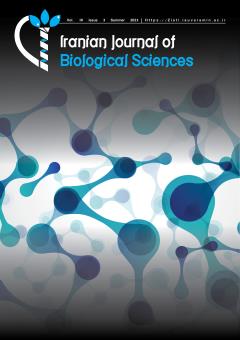The effect of organic selenium supplementation on larvae acceptance rate, royal jelly production, body antioxidant status and the relative expression of hsp90 gene in honey bee under heat stress
Subject Areas : ZoologyKhalil Rasoli-Nadergoli 1 , Ali Asghar Sadeghi 2 * , Parvin Shawrang 3 , Mohammad Chamani 4
1 - PhD student, Department of Animal Science, Science and Research Branch, Islamic Azad University, Tehran, Iran
2 - Associate professor, Department of Animal Science, Science and Research Branch, Islamic Azad University, Tehran, Iran
3 - Associate professor, Nuclear Agriculture Research School, Nuclear Science and Technology Research Institute, AEOI, Karaj, Iran
4 - Full professor, Department of Animal Science, Science and Research Branch, Islamic Azad University,Tehran, Iran
Keywords: Royal jelly, antioxidant capacity, gene expression, heat shock protein, nurse bee,
Abstract :
Introduction: In the hot seasons and in tropical regions, it is necessary to feed supplements that increase honey bees tolerance to heat stress. Due to its active role in the structure and activity of enzymes, selenium has positive effects on heat tolerance. There are different types of selenium supplements, the bioavailability of organic form is higher than other forms. Aim: This study was done to evaluate the effects of organic selenium supplementation on larval acceptance rate, amount of royal jelly produced, antioxidant status of body and the relative expression of hsp90 gene in honey bees under heat stress. Materials and methods: 20 colonies were kept in the plain region (Kianmehr, Karaj) and 20 colonies were moved to the mountainous region of Senj (Saujbolag, Alborz Province). A 2x2 factorial trial was conducted based on completely randomized design, and the location (plain or mountain) and syrup (without or containing 50 µg of organic selenium per liter) considered as factor levels. The nurse bees' body weight, body fat and protein percentage, total antioxidant capacity, concentration of malondialdehyde, alanine transferase and aspartate transferase enzymes, and heat shock protein gene expression were measured using RT-PCR technique. Results: Colonies located in the mountains and colonies receiving organic selenium had a higher percentage of larva acceptance (P<0.05). The amount of royal jelly produced was not affected by the location and the organic selenium supplementation. The nurse bees in the mountainous region who received syrup containing organic selenium supplement had the highest antioxidant capacity, the lowest concentration of malondialdehyde and transferase enzymes, and the nurse bees in the plain region who received syrup without organic selenium supplement had the lowest antioxidant capacity and the highest concentration of malondialdehyde and transferase enzymes (P<0.04). The expression of hsp90 gene in the body of bees located in the plain region was higher (2.5 times) than in the mountain region, and the organic selenium supplemented in the mountain region had no effect on the gene expression, but in the plain region, it had a down-regulating effect (30% in comparison to bees not received supplement in plain). Conclusion: The results of this study showed that heat stress has adverse effects on the antioxidant capacity of nurse bees and has the most detrimental effect on the acceptance rate of grafted larvae. The selenium supplementation at dose 50 µg/L syrup increases the acceptance rate of larvae, which can affect the amount of royal jelly production.

